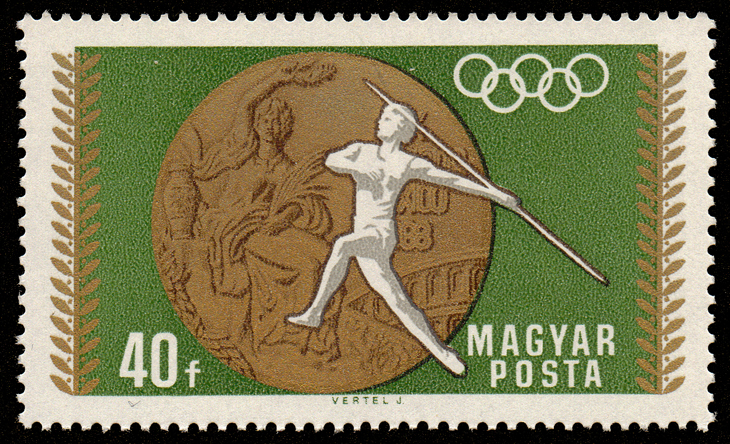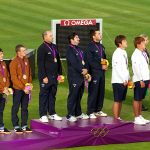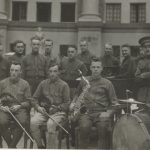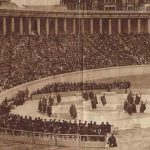The opening ceremony of the Rio Olympics on August 5 featured an assortment of the country’s musical talent, including the preeminent singer-songwriters Caetano Veloso and Gilberto Gil and performers from the worlds of samba, funk, hip-hop and bossa nova. Perhaps a bit of Heitor Villa-Lobos will yet appear before the games conclude.
It was 20 years ago that another Olympics yielded what is likely the most-performed piece of classical music ever written for the biennial sporting event.
Michael Torke’s Javelin was commissioned by the Atlanta Committee for the 1996 Olympic Games and premiered by the Atlanta Symphony Orchestra several months earlier, on February 24, 1996. This brief, colorful orchestral piece had a remarkably strong shelf life after the games were over, amassing 122 performances to date, according to Torke’s publisher, Boosey & Hawkes. It has been featured on two recordings: one by the Boston Pops (which topped the Billboard Crossover Chart in 1996) and another by the ASO:
That a pomp-infused ceremonial piece would find a lasting place in concert halls is significant. During the 1996-97 concert season, Boosey’s records show that professional performances of Javelin continued on an almost weekly basis, and its popularity continued for several more years, until finally trailing off in 2006. The score was also incorporated into a ballet, commissioned by London’s Royal Ballet and choreographed by Glen Tetley.
Torke told me in a 2012 interview that the piece was named after the ancient Olympian symbol but also his father’s old AMC Javelin. “Rather than some show-offy orchestral effects thing I started thinking more thematic,” he said. “Could I find a theme that would inspire the idea of sportsmanship, of valor, of competition? I think that’s where the theme came from.”
Curiously, Javelin was not selected as the official Olympics theme music in 1996. The organizers, together with NBC, came up with another selection, John Williams’ Summon the Heroes. Some music critics weren’t impressed by their choice: the L.A. Times‘s Mark Swed called Williams’s work “junk” while praising Torke’s “memorable tunes and spunky post-minimalist animation.” Nevertheless, Torke may have emerged the winner; Williams’s 1996 piece never caught on to the extent of his more memorable Olympic Fanfare and Theme.
Both works join a long, uneven tradition of classical music at the Olympics. Czech composer Joseph Suk wrote Toward a New Life for the 1932 Olympics in Los Angeles. Four years later, Richard Strauss composed the rousing Olympic Hymn for the 1936 games in Berlin. It was accompanied by a speech by Hitler and the release of a thousand white pigeons.
In the modern era, Philip Glass wrote music for both the 1984 Los Angeles Olympics and the 2004 Athens Games. The Olympian, composed for the torch-lighting ceremony at the 1984 games in Los Angeles, has energetic brass fanfares above his signature keyboard oscillations.
The studio recording of the piece offers a clearer sense of the work. For the Athens 2004 Cultural Olympiad, Glass composed The Olympian, a more ambitious and reflective work, featuring instrumentalists from seven cultures – from master sitar player Ravi Shankar to Chinese pipa virtuoso Wu Man.
Olympic ceremonies have often featured strange and compelling mixtures of spectacle and art, whether it was the 84 pianists playing Gershwin’s Rhapsody in Blue in Los Angeles in 1984 (as a man in a jetpack flew into the arena), or Lang Lang performing a melody from the Yellow River Concerto after 2,008 drummers pounded away with militaristic fervor (2008). The lesson from Torke may be to never take such an opportunity lightly.
Below: The opening to the 2012 Olympics in London








Leave a Reply